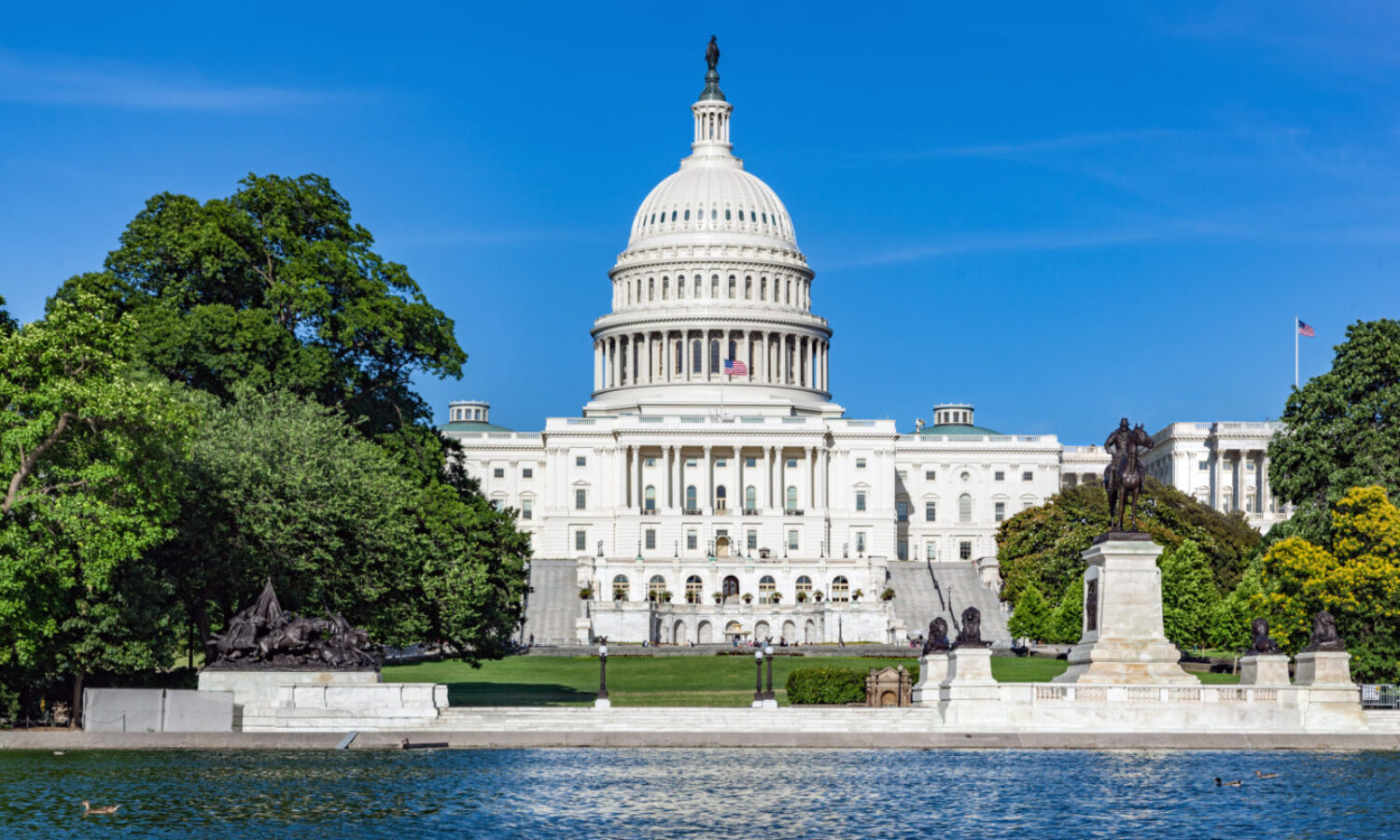i2Coalition July 2023 Legislative Brief
Your brief update on important Internet policy issues
OUTLOOK
U.S. House and Senate lawmakers departed Washington, D.C. on July 27 for the summer recess period. The Senate returns on September 6, and the House is back on September 12, leaving just a few weeks before the fiscal year ends on September 30. Passing legislation required to fund the government by September 30 and avoid a government shutdown will be an immediate priority when the Members return to Washington. The House and Senate will also negotiate the terms of the final version of the FY 2024 NDAA, the annual defense policy bill. This fall, the bipartisan House and Senate leaders of these legislative negotiations will face the challenge of finding common ground in a political environment marked by the ongoing legal troubles of former President and current candidate Trump, a desire among some Republicans to start impeachment proceedings against President Biden, and the fast-approaching Presidential election year.
TECH POLICY PRIORITIES
Section 230/Intermediary Liability. Section 230 continues to provoke robust debate in the U.S. Congress, but consensus on bipartisan reform legislation has not yet emerged. The Senate Judiciary Committee may hold another Section 230 hearing in the fall. Sens. Lindsey Graham (R-SC) and Elizabeth Warren (D-MA) introduced their long-anticipated Digital Consumer Protection Commission Act that seeks to establish a new digital regulatory agency. It would have broad authority to focus on a range of issues, such as dominant online platforms and competition, data privacy, CSAM, cyberbullying, and the impact of fast-growing innovations like artificial intelligence. In the House, Reps. Jan Schakowsky and Kathy Castor (D-FL) reintroduced the Online Consumer Protection Act, which would require social media platforms and online marketplaces to establish and disclose written terms of service and prevent them from using Section 230 as a shield when they are in violation of them.
Federal Privacy. On July 27, the Senate Commerce Committee advanced two pending children’s online privacy bills, the Kids Online Safety Act (KOSA) and the Children and Teens’ Online Privacy Protection Act (COPPA 2.0), which were re-introduced in this Congress. KOSA would establish a legal standard for covered Internet companies to protect minors and require additional parental controls. COPPA 2.0 would update a 1998 children’s online privacy law by extending existing protections to children as old as 16. Both bills still face opposition from a coalition of civil liberties and tech industry groups who are concerned that if enacted, the bills’ age verification aspects would put users’ privacy at risk and that content moderation provisions would violate the First Amendment. Senate Commerce Chair Maria Cantwell (D-WA) has said that full Senate passage of these bills is a priority. Chair Cantwell has also signaled interest in potentially turning her Committee’s attention to data privacy. House Energy & Commerce Chair Cathy McMorris Rodgers (R-WA) continues to lead the drafting of a comprehensive federal consumer data privacy and security measure that would include online protections for children.
Copyright/IP. The Senate Judiciary IP Subcommittee held a hearing in July about the impact of AI on copyright law and content owners. The hearing included a discussion about inconsistencies among the various states’ right of publicity of laws and calls for legislation to create a new federal standard. The U.S. Copyright Office hosted a July webinar on international copyright issues and artificial intelligence. The Senate Judiciary IP Subcommittee also held a U.S. Patent and Trademark Office oversight hearing in July.
Antitrust/Competition. The U.S. Department of Justice (DOJ) and Federal Trade Commission (FTC) released draft updates to the federal merger review guidelines. President Biden announced his nominees to fill the two open Republican FTC Commissioner seats (Andrew Ferguson and Melissa Holyoak). Sens Amy Klobuchar (D-MN) and Mike Lee (R-UT) sent a letter to the FTC and DOJ requesting that they assess Apple’s and Google’s expansion into the automotive industry and whether the companies are exploiting their existing dominant positions to gain an unfair and potentially illegal advantage in the sector.
Broadband. The National Telecommunications and Information Administration (NTIA) released the final model challenge process guidance for states to use in the $42.5 billion Broadband Equity, Access, and Deployment (BEAD) program. Congress still has not restored the FCC’s spectrum auction authority, which lapsed more than four months ago on March 9. Reauthorization of FCC spectrum auction authority by Congress may have to wait until after the completion of a government study report assessing the commercialization of spectrum currently allocated for use by the Dept. of Defense.
Find Out More…
For more in-depth updates on Internet policy, including issues that specifically impact your organization, please contact us about joining the i2Coalition.

